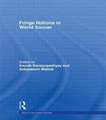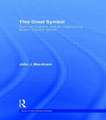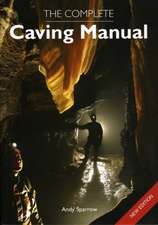The 1940 Tokyo Games: The Missing Olympics: Japan, the Asian Olympics and the Olympic Movement: Sport in the Global Society
Autor Sandra Collinsen Limba Engleză Hardback – 7 apr 2008
Exploring the relationship between Modern Asia and the Olympic Games, it focuses on the forgotten history of the 1940 Tokyo Olympics to reveal the complex and fascinating encounter between Japan and the world in the 1930s. The book is the first full account of this encounter and draws substantially on Japanese sources hitherto unknown in the English-speaking world. It argues that this encounter sets the scene and the tone for later Asian involvement in the Olympic Movement. It includes chapters on:
- Imperial Commemoration and Diplomacy
- the Japanese Fascist Olympics
- the Event, Japanese Style
- the Spectre of 1940 in Later Asian Olympics.
This book is a special issue of The International Journal of the History of Sport.
| Toate formatele și edițiile | Preț | Express |
|---|---|---|
| Paperback (1) | 322.97 lei 6-8 săpt. | |
| Taylor & Francis – 21 oct 2008 | 322.97 lei 6-8 săpt. | |
| Hardback (1) | 766.26 lei 6-8 săpt. | |
| Taylor & Francis – 7 apr 2008 | 766.26 lei 6-8 săpt. |
Din seria Sport in the Global Society
-
 Preț: 442.67 lei
Preț: 442.67 lei - 8%
 Preț: 382.04 lei
Preț: 382.04 lei - 15%
 Preț: 412.09 lei
Preț: 412.09 lei -
 Preț: 110.52 lei
Preț: 110.52 lei - 15%
 Preț: 467.79 lei
Preț: 467.79 lei - 48%
 Preț: 571.41 lei
Preț: 571.41 lei - 18%
 Preț: 1383.02 lei
Preț: 1383.02 lei - 30%
 Preț: 849.77 lei
Preț: 849.77 lei - 33%
 Preț: 329.07 lei
Preț: 329.07 lei -
 Preț: 321.01 lei
Preț: 321.01 lei - 18%
 Preț: 1330.04 lei
Preț: 1330.04 lei - 15%
 Preț: 432.12 lei
Preț: 432.12 lei - 18%
 Preț: 1111.55 lei
Preț: 1111.55 lei - 15%
 Preț: 425.55 lei
Preț: 425.55 lei - 30%
 Preț: 850.17 lei
Preț: 850.17 lei - 28%
 Preț: 826.86 lei
Preț: 826.86 lei - 30%
 Preț: 849.37 lei
Preț: 849.37 lei -
 Preț: 456.50 lei
Preț: 456.50 lei - 25%
 Preț: 327.72 lei
Preț: 327.72 lei - 15%
 Preț: 671.56 lei
Preț: 671.56 lei - 28%
 Preț: 881.27 lei
Preț: 881.27 lei - 30%
 Preț: 848.96 lei
Preț: 848.96 lei -
 Preț: 366.64 lei
Preț: 366.64 lei -
 Preț: 420.68 lei
Preț: 420.68 lei - 33%
 Preț: 327.80 lei
Preț: 327.80 lei - 18%
 Preț: 1110.74 lei
Preț: 1110.74 lei - 29%
 Preț: 1183.95 lei
Preț: 1183.95 lei - 30%
 Preț: 850.59 lei
Preț: 850.59 lei -
 Preț: 317.26 lei
Preț: 317.26 lei - 30%
 Preț: 851.40 lei
Preț: 851.40 lei - 30%
 Preț: 850.99 lei
Preț: 850.99 lei -
 Preț: 426.84 lei
Preț: 426.84 lei - 18%
 Preț: 1439.85 lei
Preț: 1439.85 lei -
 Preț: 451.32 lei
Preț: 451.32 lei - 30%
 Preț: 1017.68 lei
Preț: 1017.68 lei - 31%
 Preț: 764.51 lei
Preț: 764.51 lei - 28%
 Preț: 233.51 lei
Preț: 233.51 lei - 30%
 Preț: 847.31 lei
Preț: 847.31 lei - 18%
 Preț: 1055.21 lei
Preț: 1055.21 lei - 24%
 Preț: 337.84 lei
Preț: 337.84 lei -
 Preț: 304.90 lei
Preț: 304.90 lei - 27%
 Preț: 500.85 lei
Preț: 500.85 lei - 28%
 Preț: 827.23 lei
Preț: 827.23 lei
Preț: 766.26 lei
Preț vechi: 1103.99 lei
-31% Nou
Puncte Express: 1149
Preț estimativ în valută:
146.62€ • 159.77$ • 123.55£
146.62€ • 159.77$ • 123.55£
Carte tipărită la comandă
Livrare economică 24 aprilie-08 mai
Preluare comenzi: 021 569.72.76
Specificații
ISBN-13: 9780415373173
ISBN-10: 0415373174
Pagini: 212
Dimensiuni: 174 x 246 x 23 mm
Greutate: 0.57 kg
Ediția:1
Editura: Taylor & Francis
Colecția Routledge
Seria Sport in the Global Society
Locul publicării:Oxford, United Kingdom
ISBN-10: 0415373174
Pagini: 212
Dimensiuni: 174 x 246 x 23 mm
Greutate: 0.57 kg
Ediția:1
Editura: Taylor & Francis
Colecția Routledge
Seria Sport in the Global Society
Locul publicării:Oxford, United Kingdom
Cuprins
1. Introduction: 1940 Tokyo and Later Asian Olympics 2. The 1940 Olympics: Imperial Commemoration and Diplomacy 3. East and West: Confrontational Diplomacy 4. The Japanese Fascist Olympics 5. The Event, Japanese Style 6. The Spectacle of Olympic Tokyo and Imperial Japan 7. Conclusion: The Spectre of 1940 in Later Asian Olympics
Notă biografică
Sandra Collins received her Ph.D. from the University of Chicago. Her current academic interests are gender, sport and national identity in Japan and the United States. She is now working on a study of the myths of national sport and the failure of professional soccer in the United States. She is an authority on Japanese culture and society.
Recenzii
"Who won the gold for the javelin in the 1940 Tokyo Olympics? In her dissertation Collins explains the real reasons behind the non-existent Games, a primary one being that the Japanese government forfeited its opportunity to do so in favor of continuing colonization of other Asian regions and states. Of course this explanation is far too simple, and as she explains the role of the Olympics in imperial commemoration and diplomacy, the increasingly complex confrontations between East and West in the diplomatic dance, how the event mattered in Japanese political and social thought, the promises of spectacle and its links to the empire, the rise of militarism and the decline of enthusiasm over holding an Olympics that reflected the Olympic ideal. Particularly interesting are her reflections on the Berlin Olympics of 1938 and those in Beijing in 2008, and the specter of the 1940 Tokyo in later Asian Olympics." -- Book News Inc., August 2008
Descriere
Exploring the relationship between modern Asia and the Olympic Games, this original work focuses on the forgotten history of the 1940 Tokyo Olympics to reveal the complex and fascinating encounter between Japan and the world in the 1930s.
















